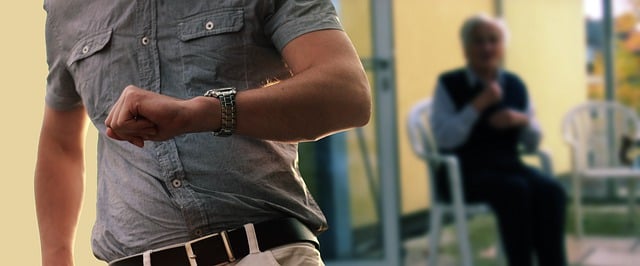Robust background checks for nursing home staff in Los Angeles are crucial to prevent elderly sexual assault and abuse. State and local laws mandate comprehensive screenings, including criminal histories and red flags for abusive tendencies, to ensure trustworthy personnel. An elderly sexual assault lawyer guides policies balancing privacy and public safety, empowering elders to report abuse and offering tailored legal support.
In Los Angeles, ensuring safety within nursing homes is paramount, especially considering the vulnerable nature of residents. This article explores the crucial role of background checks in protecting them from potential risks. We delve into the legal requirements for staff screening under local regulations and discuss a comprehensive approach to safeguard elders from abuse, with a specific focus on preventing elderly sexual assault. By addressing common concerns and dispelling myths, we highlight the significance of thorough checks, culminating in insights from an Elderly Sexual Assault Lawyer Los Angeles.
The Importance of Background Checks in Nursing Homes

In the sensitive and critical field of nursing home care, ensuring the safety and well-being of residents is paramount. Background checks for staff play a pivotal role in achieving this goal. Given that nursing homes cater to vulnerable elderly individuals, implementing robust background screening processes is essential to prevent potential risks and abuses. An elderly sexual assault lawyer in Los Angeles highlights the urgency of these measures, emphasizing that unscrupulous employees can exploit their positions to inflict harm.
Comprehensive background checks act as a protective barrier, allowing facilities to make informed decisions about hiring. They help uncover any history of criminal behavior, including allegations of abuse or violence, ensuring that only trustworthy and reliable staff members are entrusted with caring for the elderly. This proactive approach not only safeguards residents but also fosters an environment of trust and peace of mind for their families.
Legal Requirements for Staff Screening in Los Angeles

In Los Angeles, nursing home staff background checks are governed by both state and local laws, ensuring a thorough screening process to protect residents, particularly vulnerable elders. The California Health and Safety Code mandates comprehensive criminal background investigations for all employees and volunteers who have regular contact with patients in long-term care facilities. This includes nursing homes, assisted living communities, and adult day health centers.
The legal framework goes beyond simple criminal records checks. For positions where there’s a risk of elderly sexual assault or abuse, specific requirements come into play. An elderly sexual assault lawyer Los Angeles may advise that employees in direct patient care roles must undergo additional screening, such as checking local law enforcement databases, state-specific reports, and national sex offender registries. This stringent process aims to identify and prevent potential hazards within the healthcare environment, prioritizing the safety and dignity of the elderly population.
Protecting Vulnerable Elderly Residents: A Comprehensive Approach

In Los Angeles, where an aging population means a growing number of vulnerable elderly residents, protecting them from harm is paramount. Background checks for nursing home staff are more than just a procedural step; they’re a critical defense mechanism against potential risks, especially considering the sensitive nature of care these individuals provide. A comprehensive approach involves meticulous screening methods that go beyond standard criminal records checks.
This includes investigating past employment, verifying references, and looking into any red flags that could indicate a history of abuse or violence. In light of the heightened risk of elderly sexual assault, an experienced elderly sexual assault lawyer in Los Angeles emphasizes the need for thorough background checks. By implementing robust screening practices, nursing homes can foster a safer environment, ensuring that their residents receive care with peace of mind and dignity intact.
Common Concerns and Myths About Background Checks

Background checks for nursing home staff are often met with resistance due to several common concerns and myths. One such misconception is that a background check might lead to false positives, unfairly excluding qualified individuals. However, thorough screening processes use advanced technology and comprehensive databases to minimize errors, ensuring only legitimate concerns are flagged.
Another worry revolves around privacy issues, suggesting that conducting these checks invades the staff’s personal space. Yet, laws in Los Angeles balance privacy rights with public safety, allowing for necessary inquiries while protecting sensitive information. Furthermore, the potential risk of elderly sexual assault in nursing homes is a serious concern, prompting more stringent background checks. An elderly sexual assault lawyer in Los Angeles can provide insights into these matters and advocate for policies that enhance resident safety without infringing on staff’s rights.
Role of an Elderly Sexual Assault Lawyer LA

In cases involving suspected or actual elderly sexual assault in Los Angeles, an experienced elderly sexual assault lawyer plays a crucial role. These legal professionals are advocates for the vulnerable elderly population, ensuring their rights and seeking justice when they become victims of sexual crimes. An Elderly Sexual Assault Lawyer LA specializes in navigating complex legal systems to provide specialized care and representation tailored to the unique needs of elder abuse victims.
They offer guidance through medical examinations, legal procedures, and support services, empowering elders to come forward and report abuse. Their expertise lies in understanding the emotional and psychological complexities involved in these cases, ensuring clients receive not just legal redress but also the compassion and care they deserve.






